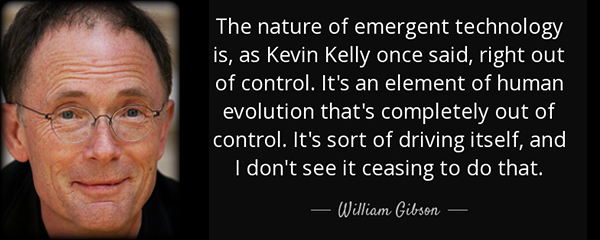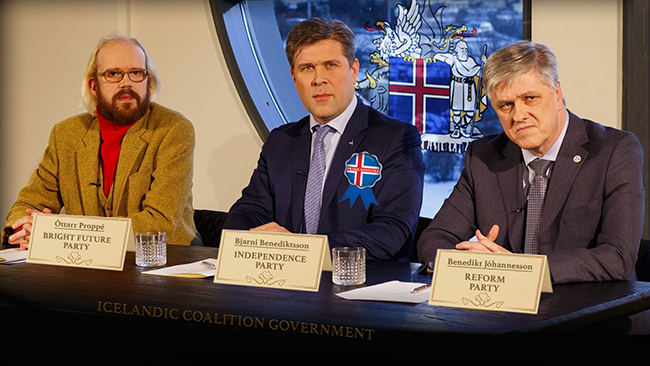The founder of Tesla Motors, co-founder of Paypal, and CEO/CTO of the company SpaceX, Elon Reeve Musk, aims to establish a colony of 80,000 humans on Mars by 2040. While fixing his short-term goals on sustainable energy production, Musk believes that life must ultimately become multi-planetary, to reduce the “risk of human extinction” due to global warming. Interestingly, Musk’s preference for Martian government is direct democracy “because the potential for corruption is substantially diminished in a direct versus a representative democracy”.
That truism was suppressed about 2500 years ago, when Sparta crushed the selectively direct democracy of Athens. Curiously, the exclusively adult, male slave-owners who ran Athens around 500 BCE, were quite close in number to the future demos of Mars. That land however, will impose absolute consensus on the direct democracy of ‘Elon and the Elites’. No more arguments about fossil fuels being good for humanity. They require oxygen to burn.
Build a Wall!
Crazed bargaining is predictable, as Earth’s denizens enter the third ‘stage of grief’ over the presumptive loss of Mother Earth. Musk’s exit strategy brings to mind The Hanged Man, as he plummets head down from the Twin Towers. At least he doesn’t fry. As least he gets to fly. Unfortunately the 68th wealthiest man in America (to date), who has stated that he wants to die on Mars, but “not on impact”, will also be cursed by gravity.
Wir sind die Hautkrankheit der Erde
(We are the Earth’s skin disease) Günter Gras, ‘Dairy of a Snail’
The Mask of the Red Death?
The Washington Post reported that as climate departure looms, a year has been pinned to every major city in the world, and Kingston, Jamaica’s number is 2023. The subject of liquid democracy becomes a talking point when the plebs begin to realise that representative politics has bleached us. Might as well try something else, at least to delay that tipping point a few years.
Weltanschauung dunkel
(Black as the ace of spades)
99% Dreaming
Michael Hart and Antonio Negri, in their books ‘Empire’ and ‘Multitude’, describe how a potentially new type of society is maturing inside the womb of the old; how the rise of the “multitude” in the midst of capitalism, “makes democracy possible for the first time”. And how, historically, democracy was constrained by systems of political representation and hierarchically centralised state structures (‘‘the form of the One”).
The development of new forms of ‘immaterial labour’ corresponds with the rise of the ‘multitude’, who produce “not just goods or services; the multitude also and most importantly produces cooperation, communication, forms of life, and social relationships”. What thereby emerges is a vast new domain – the ‘commons’ – comprised of shared knowledge, revolutionary new forms of cooperation, social interaction, information and communications technology, etc; and this new domain is seriously at odds with the private ownership of the means of production by a privileged elite.
Directly socialised, immaterial production renders owners progressively superfluous – (good job, if they’re leaving for Mars!). The objective, material conditions therefore exist for an ‘absolute democracy’, where the associated producers directly regulate their social relations without the interference of democratic ‘representation’.
Professor Simon Tormey, in ‘The End of Representative Politics’, his study of the Arab Spring, Occupy, Anonymous and, in particular, ‘The Spanish Laboratory’, describes how ‘vertical’ systems of political representation are being subverted and overtaken by ‘horizontal’ political movements. Tormey celebrates:
“…a plethora of forms and styles of what might be called immediate or non-mediated politics: direct action, flash protests, Twitter-led mobilizations, pinging, hacking, squatting, boycotting, buy-cotting, occupying and other interventions of a direct, practical kind. Increasingly, politically engaged citizens don’t vote, they act. They don’t join mass parties contesting power; they create their own initiatives, ‘micro-parties’, networks, affinity groups, deliberative assemblies, participatory experiments. They don’t wait for elections; they seek to make their views, anger, displeasure, known immediately, now. They don’t read the media, They (to quote Indymedia) are the media.”
In a talk last year entitled ‘Lessons from Spain: Grassroots Democracy and the Movements against Capitalism’, at Sydney’s Politics in the Pub, Tormey marvelled at how 6 million people in Spain could be instantly mobilised by PODEMAS via Twitter. Social media and indeed, citizen journalism would seem to be the life-blood of the rhizome – “Like passing thousands of buckets of water, to put out the fire”, as Julian Assange once described the viral communications of Wikileaks supporters.
In his 1929 short story, Chains (Láncszemek), Frigyes Karinthy first introduced the notion of ‘six degrees of separation’– where everyone is potentially connected, via ‘friends of friends’ through a maximum of six intermediaries. In 1990, we still thought that idea equally viable, or dubious. Four years later, author Kevin Kelly would write ‘Out of Control: The New Biology of Machines, Social Systems, and the Economic World’, which would predict our post-millennial vision of ‘Chains’, as a Hive Mind. One giant leap for mankind, that would disrupt all manner of hierarchy and ruse.
Aaaarrrgh!
Brigitta Jónsdóttir – former Wikileaks associate, co-founder of the Icelandic Modern Media Initiative and leader of Iceland’s Pirate Party – is likely to become the country’s Prime Minister this November.
The Pirates were already well ahead in the polls before the current coalition government’s PM, Sigmundur Davíð Gunnlaugsson, was named in the Panama Papers in relation to the offshore secretion of funds. Although he allegedly did not break Icelandic law, almost 10% of the population took to the streets outside of Parliament to oust him. Gudni Johannesson, historian at the University of Iceland, and man most likely to become the next President of Iceland, explains:
“His message to the country was more or less that we should all be together, we are all in the same boat, but at the same time he had taken a boat of his own, filled it up with gold and moved it abroad.”
Same old same old…
Dr Aleks Krotowski, who created the series: The Virtual Revolution, advances the notion that the greater the number of people who contribute to a body of knowledge, the more reliable that body of knowledge becomes, if it accumulates within a self-correcting system. She cited the evolution of Wikipedia, which in its nascence was scorned, but as the number of contributors grew it became 1% more reliable than Encyclopædia Britannica.
The self-correcting mechanisms of Wikipedia and the citizen-authored draft Constitution of Iceland, which was being finalised by Lawrence Lessig for the 2016 elections, had their flaws, but these collectively written facts and laws reflected a move away from centralised power, media and knowledge. It was perhaps time to pool together to ‘future proof’ our communities, education and planet. Clive Hamilton, at the launch of his book Requiem for a Species said it would take thousands of years to undo the damage Capitalism and the Industrial Age has done to our eco-system, even if we were to drastically reduce our carbon emissions tomorrow. We won’t, while “Coal is good for humanity” continues to dominate our airwaves, and Trump convinces 40% of his followers that climate change isn’t real.
Julian Assange once made an astute comment, that it matters less who’s telling the truth, than who has the biggest megaphone. My first port of call with this project will be Iceland to visit ‘The Mouse That Roared’, Birgitta Jonsdottir, a parliamentarian who co-founded, with help from Assange, the Icelandic Modern Media Initiative. The aim was to create a “media haven” for journalism, and protect it as the self-correcting system in our society. She and the Pirate Party agreed to hear my questions, and I intend to document events leading up to the November 2016 elections. The world has its eyes on Iceland. Not only did they refuse to bail out their ‘banksters’ after the Global Financial Crisis; not only did they jail them and go on to successfully re-build their economy; should the Pirates win, this will be the first government in the world to operate on a model of liquid democracy.
‘Liquid’ is a form of direct democracy, on an interactive, online platform; where (rightfully) informed citizens can discuss, approve and create policy directly – or nominate ‘floating’ representatives whose expertise they trust on a particular issue to vote on their behalf. I’ll be looking at the efficiency of specific platforms, such as Liquidfeedback, which was developed in Germany, as well as DemocracyOS, which is used by Pia Mancini and the Net Party in Argentina.
As for my own place within the ‘hive mind’, I became a citizen journalist in 2010 in the wake of the Wikileaks revelations, and I played my part in the genesis of a people’s movement that concerned itself with holding power to account and demanding accuracy in the historical record. Over the next few years, I wrote around 200 articles on my blog Thing2Thing.com (see ‘Archives’), and made about 80 films, including a DVD edition entitled The Wikileaks Tapes. It took little time (given my technical skills, a Creative Commons media strategy and deep investment) to attract the attention of those who would provide wind for my sails.
This review of The Wikileaks Tapes tells much of my story and unusually informal approach. I’m not sure I really knew what I was doing at first, but I surprisingly found myself chatting with people who had changed history, such as Daniel Ellsberg; I collaborated with other citizen journalists, like Alexa O’Brien who ‘self-produced’ the daily transcripts of Private Manning’s trial; and I recorded the laments of many professional journalists and members of the legal community.
The Next Generation
I plan to re-visit my friends in the US, including a number of whistle-blowers, film-makers and writers. Ecuador is also on the wish-list, to examine how their 2009 constitution is panning out, particularly in relation to the laws governing media ownership. Finally, there is much to document regarding the growth of social movements in Australia and cross-talk between them; from the Climate Angels to the Knitting Nannies; from Lock the Gate to Stop the War; from WACA to RACS. It’s a small world after all, and although ‘we the people’ will be hard put to save it, there appears to be much that can be done to mitigate the worst effects of inclement weather.
Irony on Mars
My crowd-funder film to attend COP21, the 2015 Paris climate conference.
Special thanks to Chris Hedges.
Update
After a blistering scare campaign from the Right just before the Icelandic elections, the Pirate Party did less well than expected, but they nevertheless tripled their votes from the last election, and won 10 out of the 63 seats.
Disgraced Sigmundur Davíð Gunnlaugsson’s former Progressive Party won only 8 seats, thus leaving the ‘winner’ of the elections, the Independence Party with 21 seats, impotent in forming government with them, as they had done before. 32 of the 63 are required.
Initially the Independence Party could find no other allies among the five other parties, so the mandate to form government was passed on to the Left. Given the numbers, all five parties would have to unite to table a majority.
Both the Left Green Party and the Pirates attempted to manage this, but failed. Finally, on January 17th 2017, a Coalition emerged, composed of the Independence Party, Bright Future and the Reform Party.
The new Prime Minister of Iceland is Bjarni Benediktsson, the leader of the Independence Party. He was one of the high-profile Icelandic politicians who managed to stay afloat, after being named in the Panama Papers. He is alleged to have buried a report on the names of other Icelanders with offshore accounts until after the elections. Benediktsson has recently come under heavy criticism from the Green Left Party and the Pirates. To be continued…
Aaaaarrrrgh!








